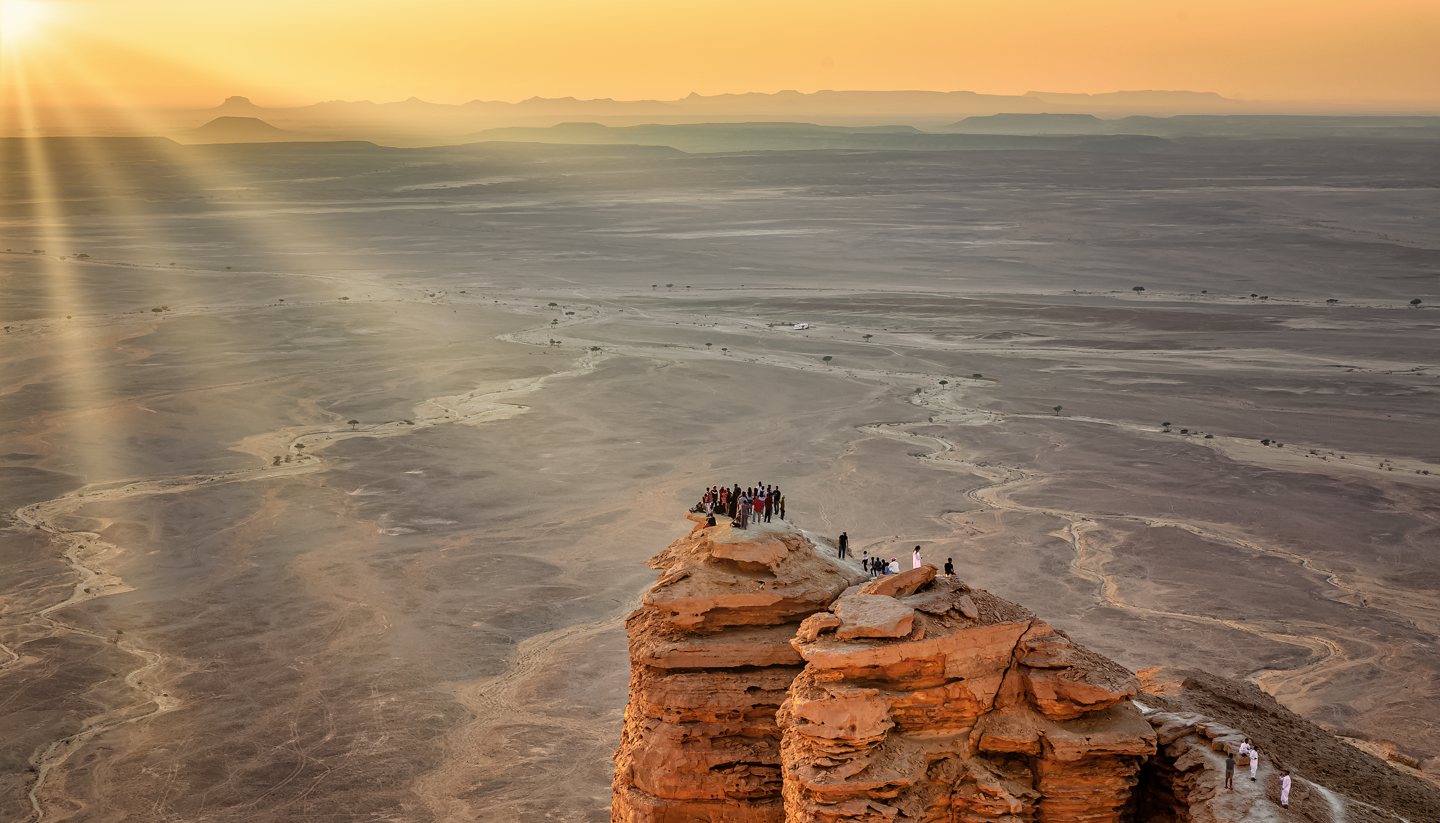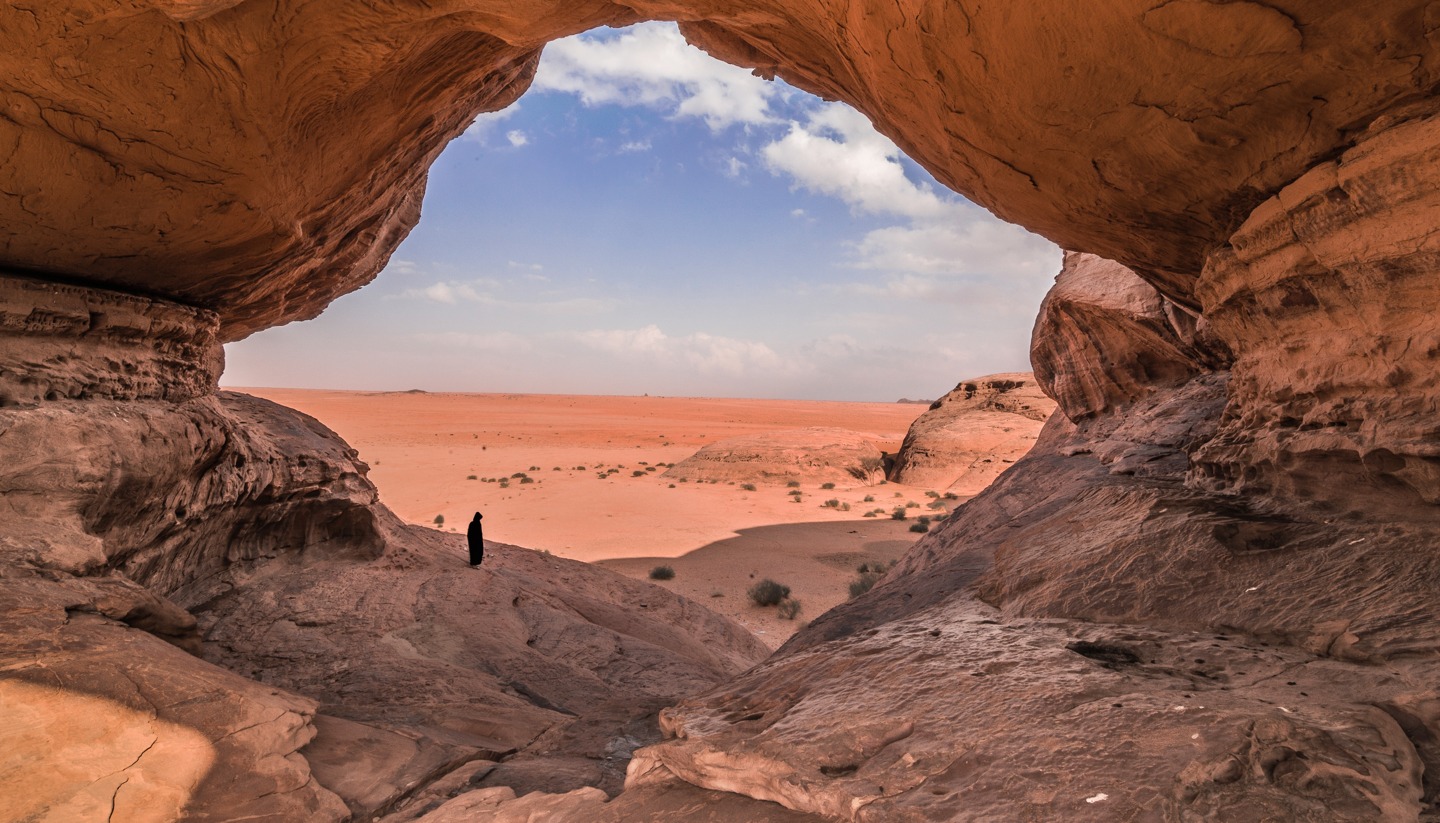Saudi Arabia History, Language and Culture
History of Saudi Arabia
Sandwiched between the Empires of Rome and Asia, Saudi Arabia was an important trade centre where caravans laden with highly prized spices, myrrh and frankincense traversed the Arabian Peninsula.
Around the year 610, Saudi Arabia became the birthplace of Islam when Prophet Muhammad, a native of Makkah, received a message from Allah through the Angel Gabriel. When the Prophet started to preach the oneness of God, his popularity grew and many converted to Islam. In 622, Prophet Muhammad led his followers to the town of Yathrib, which was later renamed Madinat Al-Nabi or Medina. This event, known as the Hijrah, now marks the beginning of the Islamic calendar.
The modern Kingdom of Saudi Arabia started in 1932 when King Abdulaziz successfully united various tribes into one nation. The new nation quickly embarked on various plans to modernise through economic and social development initiatives. In recent years, in the wake of a diminished oil market, Saudi Arabia has been keen to diversify its economy away from its dependence on oil. Tourism, healthcare and tech-based industry are some of the areas that the government is expanding.
Did you know?
• Arabic words and sentences are written and read from right to left, and books and papers from back to front.
• Saudi has a high population of youth. In 2020, young people aged 15-34 made up 36.7% of the Kingdom's population.
• Saudi Arabia has a desert climate but its mountains in the northern region receive snowfall from time to time.
Saudi Arabia Culture
Religion in Saudi Arabia
About 83% Sunni Muslims and 9% Shia Muslims. There are many foreigners working in Saudi Arabia and they have different faiths.
Social Conventions in Saudi Arabia
Islamic law is enforced and local courtesies should be observed.
The most common form of greeting is using the phrase Salam Alaykum, meaning 'may peace be upon you', followed by a handshake (between men). Between close friends of the same gender, they may greet each other with kisses on the cheek or press their noses together. Women may greet each other with kisses on the cheek, though they are more restrained in public. Public displays of affection between the opposite sex should be avoided.
Invitations to private homes are not common, as entertaining is usually done in hotels or restaurants. Visitors should always bring a small gift and use only the right hand to pass food and eat – although knives and forks are most likely to be used. If you are invited to a home, beware that every Saudi home has a majlis, a dedicated entertainment room where the host offers dates and qahwa (lighted roasted coffee ground with cardamom and flavoured with saffron) in small cups to visitors. Visitors should not venture beyond the majlis.
What to wear in Saudi Arabia for men and women?
Visitors (both men and women) should dress conservatively. Loose-fitting garments that cover the elbow and below the ankle are required for both sexes. For example, a man should wear a long-sleeved shirt and a pair of trousers, but nothing too tight. While an abaya (a long robe) is no longer a must for women, we still recommend you to purchase one because it is comfortable and it allows you to wear a long dress or a blouse and pants underneath it. It is also possible to wear less (like a t-shirt and calf-length pants) underneath the abaya, provided that you are mindful and conceal them properly with your abaya. Foreign women are also not required to cover their hair with a hijab (head covering).
Children aren't subject to any specific dress code, although they are recommended to dress modestly.
In terms of footwear, there are no restrictions. Trainers, open-toed shoes and even sandals are allowed. However, you must remove your footwear before entering religious sites.
Saudi Arabia takes violations of public decency seriously. All visitors should read up the public conduct and decency laws before their trip by following this link.
Photography
Beware that taking pictures of videos of people, government buildings and national infrastructures without permission is a fineable offence.
Ramadan
Ramadan is the holy month of fasting where Muslims abstain from food and drink from sunrise to sunset. Visitors should also not eat and drink in public during this period. Many shops are closed during the day but open when night falls. At the end of Ramadan is Eid Al Fitr, a public holiday that sees many festive events taking place across the country.
Language in Saudi Arabia
Arabic. English is also widely spoken (many Saudis speak excellent English).
Phrases
Common Arabic Phrases
• It's nice to meet you = Forsa sa'eda or Tasharrafna
• Do you speak English? = Tetkalam Engleezy?
• I don't understand much Arabic = Ma afham Arabi
• What is your name? = Eysh Esmk?
• My name is … = Ismii …
• How are you? = Kaif halak? Kaif al hal? or Kafik?
• I'm fine, thank you = Ana bikhayr shukran
• How much? = Kam? or Be kam?



